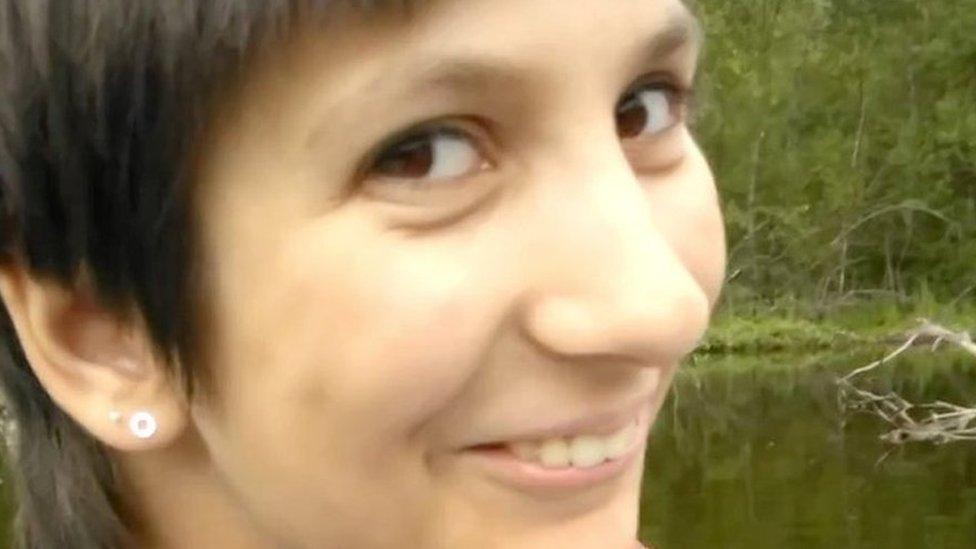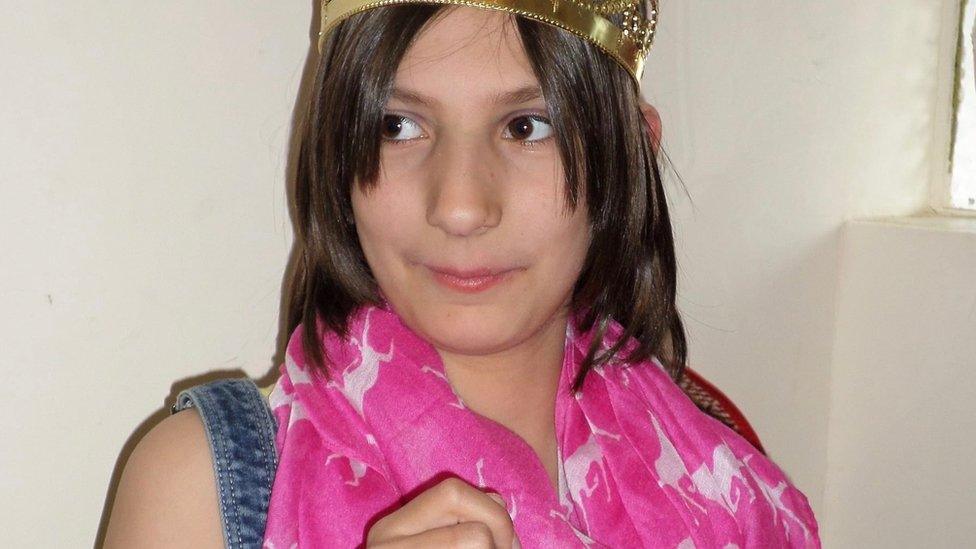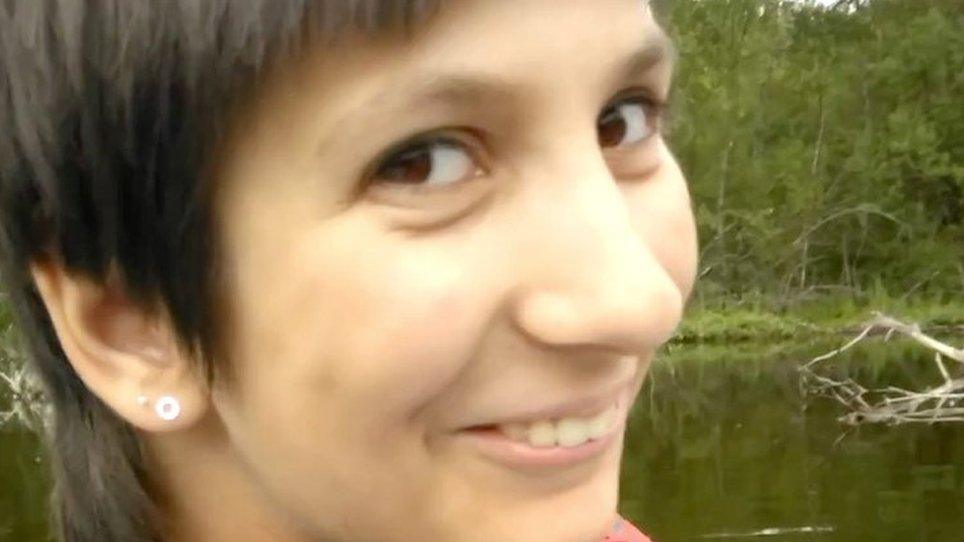Frankie Thomas: Bereaved parents call for action on harmful content
- Published

Frankie Thomas took her own life after viewing graphic content online for months
The parents of a teenager who took her own life after viewing harmful online content while at school have said what happened was a "catastrophic failure".
Frankie Thomas, 15, died at home in Witley, Surrey, in September 2018, after viewing self-harm material.
In a report sent to the Education Secretary, a coroner said action must be taken to prevent future deaths.
Judy and Andy Thomas said: "Frankie was not safe at school... There must not be any complacency."
The government said schools had a legal duty to keep pupils safe and "groundbreaking" new laws would make sure tech companies prevent children from accessing harmful material.
'Extremely dangerous'
At the conclusion of an inquest into Frankie's death in October, Surrey Assistant Coroner Karen Henderson recorded a suicide verdict.
The inquest was told Frankie, who had autism, had access to a laptop and iPad at Stepping Stones School in Hindhead, and that her mother had asked staff to monitor her activity.
During the inquest, former head teacher Melissa Farnham said a filter provided by an external IT company could not have been working.
Frankie had used a platform called Wattpad, where users can write and share stories. The last piece she read mirrored the method she used to take her own life.
In a statement in October, Stepping Stones said it was devastated by Frankie's death and had been "proactive in implementing new and highly robust e-safety measures".

The coroner criticised Frankie's school, the Department for Education and the online platform Wattpad in her ruling
In her report, Ms Henderson said schools were using a wide range of software with "inadequate regulatory oversight and outdated guidance".
She said that "action should be taken to prevent future deaths".
Mr and Mrs Thomas said: "Frankie was not safe at school. The internet can be an extremely dangerous place, particularly for those with special educational needs like Frankie and what happened to her was a catastrophic failure.
"There must not be any complacency."
A spokesperson from the Education department said: "This tragic case highlights the vital importance of protecting children, particularly the most vulnerable, from harmful content online.
"Schools have a legal duty to keep pupils safe and our statutory safeguarding guidance sets out in detail how we expect them to protect pupils from potentially harmful online material.
"This government's Online Safety Bill will deliver groundbreaking new laws which make sure tech companies prevent children from accessing self-harm and suicide content which risks causing them harm."
If you have been affected by the issues raised in this article, help and support is available via BBC Action Line.

Follow BBC South East on Facebook, external, on Twitter, external, and on Instagram, external. Send your story ideas to southeasttoday@bbc.co.uk
- Published7 October 2021

- Published13 July 2021

- Published12 July 2021
